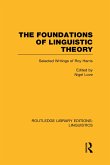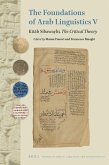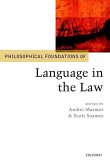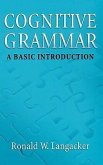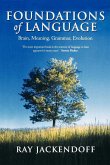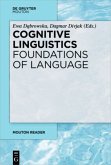This is the second volume of a two-volume work that introduces a new and fundamentally different conception of language structure and linguistic investigation. The central claim of cognitive grammar is that grammar forms a continuum with lexicon and is fully describable in terms of symbolic units (i.e. form-meaning pairings). In contrast to current orthodoxy, the author argues that grammar is not autonomous with respect to semantics, but rather reduces to patterns for the structuring and symbolization of conceptual content. This volume suggests how to use the theoretical tools presented in Volume I, applying cognitive grammar to a broad array of representative grammatical phenomena, primarily (but by no means exclusively) drawn from English. Reviews "The amount of data and the wealth of analyses presented is impressive. . . . Langacker has again succeeded in producing a very stimulating and coherent piece of work. And the material analyses offered deserve much more careful attention and reflection than is possible within the limits of a review." --Canadian Journal of Linguistics "Finding ways to talk about language as a cognitive process intricately interwoven with conceptual behavior seems to be the unifying concern of cognitive linguistics in general, and Langacker's work is of major significance in this respect. It has not been possible in this short review to do justice to the enormous complexity of the theoretical enterprise presented in Foundations of Cognitive Grammar nor the detail of analytical procedures and findings." --Australian Journal of Linguistics
Hinweis: Dieser Artikel kann nur an eine deutsche Lieferadresse ausgeliefert werden.
Hinweis: Dieser Artikel kann nur an eine deutsche Lieferadresse ausgeliefert werden.


